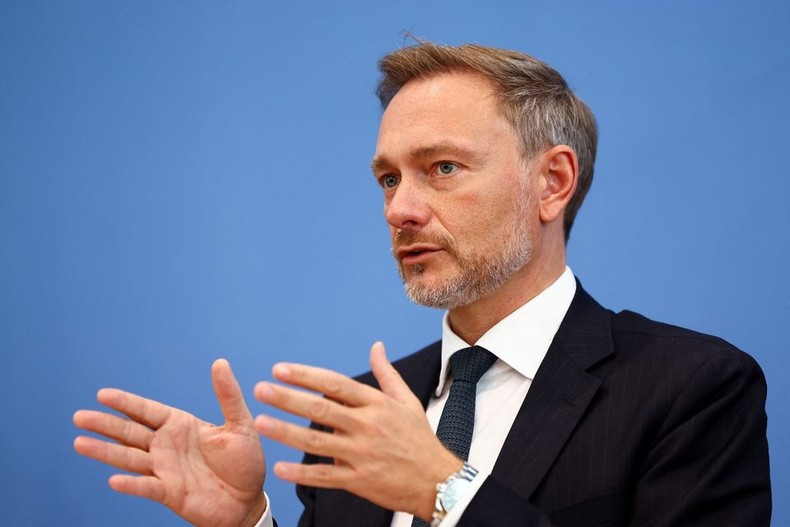The fact that the German government has to apply austerity policy in order to normalise the fiscal year after a long period of the budget's burden swelling is because of the hundreds of billion euros debt accrued in response to COVID-19 and the conflict in Ukraine.
Prime Minister Olaf Scholz's government has approved the draft of 2024 budget and the financial plans through 2027 submitted by Federal Minister of Finance Christian Lindner of the Free Democratic Party (FDP).
This draft proposes 445.7 billion EUR for the 2024 spending level, less than 30 billion EUR compared to the 2023 planned level. Despite the reduction, spending levels will still be 25% higher than they were in 2019. The new loan cutting is even more drastic as new loans are predicted to be 16.6 billion EUR in 2024, down from 45.6 billion EUR in 2023.
The new debt is within the Constitution's allowable range, and the debt brake will also be complied with for the second year in a row, thereby new annual borrowings will be limited to the rate of 0,35% of gross domestic product (GDP). This policy is being restored in the context of Europe's biggest economy facing many difficulties.
 |
| German Minister of Finance Christian Lindner. (Photo: Reuters) |
The financial plan through 2027 also shows that Germany's new loans plan will have been reduced to 15 billion EUR by that time. However, it is estimated that Germany's medium-term budget plan is still deficient about 14.4 billion EUR in the context of Minister Lindner trying to balance financial obligations and the needs of government spending.
This draft budget above is considered an important step to reduce the budget deficit, which has been inflated by the impact of measures in response to pandemic and the energy crisis. Although the draft has been approved, there are still some details that will continue to be discussed until next August, such as the "Basic Child Security" spending plan from 2025, the detailed budget plan for the climate and transition fund (KTF), including a heating replacement subsidy from 2024.
Europe's biggest economy has fallen into recession since early 2023 due to rising inflation and soaring interest rates. By creating some special non-state-official-budget funds, the German government has imposed the debt brake rule again in 2023. These funds are used to help households and enterprises cope with rising energy prices.
According to Mr. Lindner, the debt brake policy is important while monetary and fiscal policies need harmonising to prevent inflation and avoid any conflict between these two policies, in the context of Europe's biggest economy's public debt continuing to increase in the first quarter of 2023, reaching a peak at over 2.4 trillion EUR.
The Federal Statistical Office of Germany (Destatis) said that Germany's public debt in the first quarter of 2023 has increased by 38.8 billion EUR compared to the end of 2022. The main reason for this surge is the increased federal government financial demands to deal with the energy crisis. Soaring energy prices were originally the main cause of high inflation in Germany in 2022 - which urged the German government to quickly find measures to ease it.
The German Federal Ministry of Finance has implemented a budget spending controlling policy, after a period of heavy spending on post-pandemic recovery goals and coping with the energy crisis, however, military expenditure is still being prioritised. In the 2024 federal budget plan, Minister Christian Lindner predicts net new loans will be 16.6 billion EUR due to record-high defence spending.
The German government has committed that by 2024, it will have met the defence spending target of 2% of GDP as proposed by NATO, with 51.8 billion EUR expected for defence spending and 19,2 billion euros in supplementary budget funds for the armed forces.
Like other countries in the European Union, Germany is required to draw up its medium-term fiscal plan to cut down its deficit and public debt at a sustainable pace.
German Federal Minister of Finance Christian Lindner emphasised that the growth of government spending must be slower than economic growth and it must have a guaranteed basis to reduce the deficit. Reducing public debt and investing in innovation and defence are the primary goals that the German government has set out for its upcoming budget spending.
















